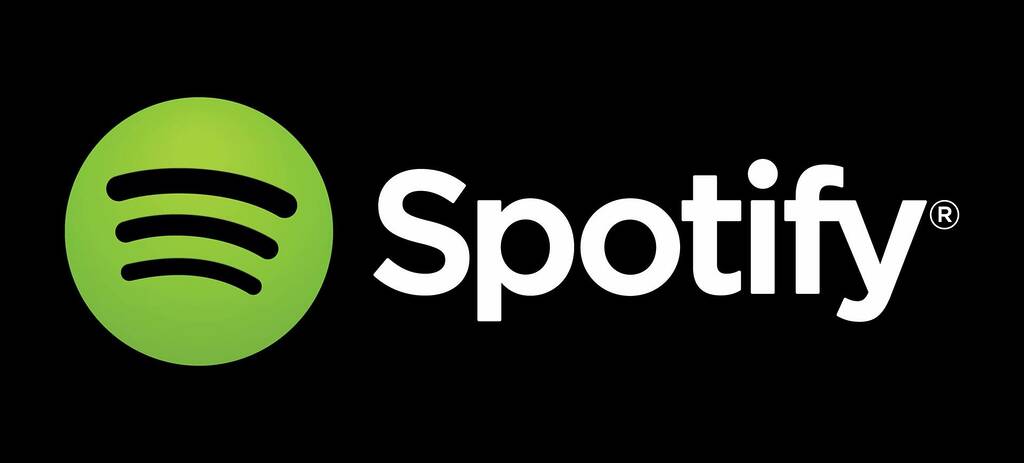
Introduction
Overview of Spotify
Spotify, the popular music streaming platform, has revolutionized the music industry in numerous ways. With its user-friendly interface and vast library of songs, Spotify has become the go-to platform for music lovers around the world. It offers a unique combination of convenience, variety, and affordability, allowing users to access millions of songs at their fingertips. Moreover, Spotify’s personalized recommendation algorithm ensures that users discover new music based on their preferences, making the listening experience even more enjoyable. In addition to benefiting music listeners, Spotify has also had a profound impact on artists and the music industry as a whole. It has provided a new avenue for artists to reach a global audience and gain recognition, breaking down geographical barriers and democratizing the music industry. Furthermore, Spotify’s revenue model, which includes both free and premium subscription options, has helped combat music piracy by offering a legal and affordable alternative. Overall, the rise of Spotify has transformed the way we consume and interact with music, shaping the future of the music industry.
Brief history of Spotify
Spotify, founded in 2006, has revolutionized the music industry in numerous ways. With its innovative streaming platform, Spotify has provided music lovers with instant access to a vast library of songs from various genres and artists. This has significantly changed the way people consume music, shifting from physical CDs and digital downloads to online streaming. Additionally, Spotify’s personalized recommendation algorithms have introduced listeners to new artists and genres, helping to diversify their musical tastes. The convenience and accessibility offered by Spotify have made it a dominant player in the music industry, influencing not only how music is consumed but also how artists promote and distribute their music.
Importance of studying the impact of Spotify on the music industry
The importance of studying the impact of Spotify on the music industry cannot be overstated. With its launch in 2008, Spotify revolutionized the way people consume music, shifting the industry from physical sales to streaming. This shift has had far-reaching effects on artists, record labels, and music listeners alike. By understanding the impact of Spotify, we can gain insights into the changing dynamics of the music industry, the challenges faced by artists in the digital age, and the opportunities that arise from new platforms. Moreover, studying the impact of Spotify allows us to assess the economic implications and potential benefits for the music industry as a whole. It is crucial for researchers, industry professionals, and music enthusiasts to delve into this topic to navigate the evolving landscape of the music business and ensure its continued growth and sustainability.
Evolution of Music Consumption

Traditional music consumption methods
The traditional music consumption methods have greatly evolved with the advent of streaming platforms like Spotify. In the past, music lovers relied on physical formats such as CDs, vinyl records, and cassette tapes to listen to their favorite songs. These formats had limitations in terms of storage capacity and portability. However, with Spotify, listeners now have access to a vast library of music at their fingertips. They can stream any song or album instantly, without the need for physical copies. This shift in music consumption has had a profound impact on the music industry, revolutionizing the way music is accessed, discovered, and monetized.
Introduction of digital music platforms
The introduction of digital music platforms has revolutionized the music industry, and one of the most influential platforms in this regard is Spotify. With its user-friendly interface and vast library of songs, Spotify has changed the way people consume music. It has provided a convenient and accessible platform for both artists and listeners, allowing them to connect and share music effortlessly. Moreover, Spotify’s personalized recommendations and curated playlists have made it easier for users to discover new music and artists. As a result, the impact of Spotify on the music industry has been significant, shaping the way music is created, distributed, and consumed.
Rise of streaming services like Spotify
The rise of streaming services like Spotify has revolutionized the music industry in many ways. With its user-friendly interface and vast library of songs, Spotify has made it easier than ever for music lovers to access their favorite tunes. Gone are the days of purchasing physical CDs or downloading individual tracks; now, all it takes is a few clicks to stream any song, anytime, anywhere. This convenience has not only changed the way we consume music but has also had a profound impact on artists and record labels. While streaming services offer a wider audience reach and potential for discovery, they have also raised concerns about fair compensation for musicians. Nevertheless, there is no denying the significant influence that Spotify and other streaming platforms have had on the music industry, shaping the way we discover, listen to, and support artists.
Benefits of Spotify for Artists

Increased exposure and reach
With the rise of Spotify, musicians and artists now have a platform that allows them to reach a global audience like never before. The streaming service’s vast user base and extensive reach have provided artists with increased exposure and the opportunity to connect with fans from all corners of the world. This increased exposure has not only opened doors for emerging artists to gain recognition but has also allowed established musicians to expand their fan base and reach new audiences. Additionally, Spotify’s personalized recommendation algorithms have made it easier for listeners to discover new music, further enhancing the exposure and reach of artists. Overall, the impact of Spotify on the music industry has been significant in terms of increasing the visibility and accessibility of music, ultimately shaping the way we consume and discover music today.
Access to valuable data and analytics
Access to valuable data and analytics is one of the key advantages that Spotify brings to the music industry. With its vast user base and extensive music library, Spotify is able to collect and analyze data on a massive scale. This data includes information on user preferences, listening habits, and trends, providing valuable insights for artists, record labels, and industry professionals. By leveraging this data, artists can better understand their audience and tailor their music to meet their fans’ preferences. Record labels can use the analytics provided by Spotify to identify emerging trends and sign artists with the potential for success. Overall, Spotify’s access to valuable data and analytics has revolutionized the way the music industry operates, empowering artists and industry professionals to make informed decisions and drive innovation.
Opportunities for collaboration and discovery
The rise of Spotify has created new opportunities for collaboration and discovery within the music industry. With its vast library of songs from various genres and artists, Spotify has become a platform where musicians can connect and collaborate with each other. Artists can easily discover and explore new music, allowing for a more diverse and inclusive music scene. Additionally, Spotify’s algorithm-based recommendations and personalized playlists enable listeners to discover new artists and genres that align with their preferences. This not only benefits listeners who are constantly looking for fresh and exciting music, but also provides emerging artists with a chance to gain exposure and reach a wider audience. Overall, Spotify has revolutionized the way music is created, shared, and discovered, opening up numerous opportunities for collaboration and expanding the horizons of the music industry.
Challenges Faced by the Music Industry

Decline in physical album sales
The rise of music streaming platforms like Spotify has had a significant impact on the music industry, leading to a decline in physical album sales. With the convenience and accessibility offered by streaming services, more and more people are opting to listen to music online rather than purchasing physical copies. This shift in consumer behavior has resulted in a decrease in revenue for record labels and artists who heavily relied on album sales. Additionally, the decline in physical album sales has also affected the retail industry, with music stores struggling to stay afloat. As streaming continues to dominate the way we consume music, it is crucial for artists and industry professionals to adapt to this new landscape and find alternative revenue streams.
Impact of piracy and illegal downloads
The impact of piracy and illegal downloads on the music industry cannot be understated. With the rise of digital technology, it has become easier than ever for people to access and share copyrighted music without permission. This has resulted in significant financial losses for artists, record labels, and other music industry professionals. Additionally, piracy and illegal downloads have also affected the overall quality and diversity of music available to consumers. Many artists and musicians are discouraged from creating new music or pursuing a career in the industry due to the fear of their work being stolen or devalued. Furthermore, the prevalence of piracy and illegal downloads has made it more challenging for legitimate streaming platforms like Spotify to compete and thrive in the market. In order to mitigate the impact of piracy, the music industry has implemented various measures such as digital rights management systems and legal actions against infringers. However, the battle against piracy continues, and it remains a significant challenge for the music industry to protect the rights and livelihoods of artists and creators.
Shift in revenue streams
The emergence of Spotify has brought about a significant shift in revenue streams within the music industry. In the past, artists and record labels relied heavily on album sales and physical music formats such as CDs and vinyl records to generate income. However, with the rise of streaming platforms like Spotify, the way music is consumed and monetized has drastically changed. Streaming services now account for a substantial portion of revenue for artists and record labels, as listeners increasingly opt for the convenience and affordability of streaming music over purchasing physical copies. This shift has not only impacted the way artists earn money but has also influenced the strategies and business models of record labels and music distributors. As a result, the music industry has had to adapt and find new ways to generate revenue in this digital age.
Impact on Record Labels

Changes in business models
The emergence of Spotify has brought about significant changes in business models within the music industry. With the rise of streaming services, traditional revenue streams such as album sales and physical music stores have been greatly impacted. Artists and record labels now rely heavily on streaming platforms like Spotify to generate income and reach a wider audience. This shift in business models has also led to a greater emphasis on playlist placement and algorithmic recommendations, as artists and labels strive to gain visibility and increase their chances of success in the digital landscape. Additionally, the advent of Spotify has opened up new opportunities for independent artists to gain recognition and connect directly with their fans, bypassing the traditional gatekeepers of the industry. Overall, the impact of Spotify on the music industry has been profound, reshaping the way music is consumed, distributed, and monetized.
Negotiating deals with streaming platforms
Negotiating deals with streaming platforms is a crucial aspect of the music industry in the age of Spotify. As the popularity of streaming services continues to grow, artists and record labels must navigate the complexities of these agreements to ensure fair compensation and exposure for their music. With millions of songs available on platforms like Spotify, negotiating favorable terms can make a significant difference in an artist’s success. From royalty rates to promotional opportunities, every aspect of these deals must be carefully considered and negotiated to maximize the benefits for all parties involved. The rise of streaming platforms has revolutionized the way music is consumed, and negotiating deals with these platforms has become an essential skill for artists and industry professionals alike.
Importance of playlist placements
Playlist placements on Spotify have become increasingly important for musicians and the music industry as a whole. With the rise of streaming platforms, playlists have become a major discovery tool for listeners, allowing them to easily find new music. Being featured on popular playlists can significantly increase an artist’s exposure and reach, leading to more streams, followers, and potential fans. Moreover, playlist placements often result in higher royalties for musicians, as streams from playlists contribute to their overall revenue. As a result, artists and industry professionals are now focusing more on securing playlist placements to maximize their chances of success in the highly competitive music landscape.
Future of the Music Industry with Spotify

Emerging trends and innovations
Emerging trends and innovations in the music industry have been greatly influenced by the rise of Spotify. With its user-friendly interface and vast music library, Spotify has revolutionized the way people discover and consume music. One of the key trends that has emerged is the shift towards streaming as the primary method of music consumption. This has led to a decline in physical album sales and a rise in the popularity of curated playlists and personalized recommendations. Additionally, Spotify’s algorithm-driven playlists have opened up opportunities for independent artists to reach a wider audience and gain recognition. Overall, the emergence of Spotify has not only changed the way we listen to music but has also paved the way for new business models and opportunities in the music industry.
Role of artificial intelligence in music curation
Artificial intelligence (AI) has revolutionized the music industry, particularly in the realm of music curation. With the rise of streaming platforms like Spotify, AI algorithms play a crucial role in recommending personalized playlists and discovering new music for users. These algorithms analyze vast amounts of data, including user listening habits, preferences, and even contextual factors such as time of day and mood, to create tailored recommendations. AI-powered music curation has not only enhanced the listening experience for users but has also provided opportunities for emerging artists to gain exposure and reach a wider audience. As AI continues to evolve, it will undoubtedly continue to shape the future of music curation and further transform the music industry as a whole.
Potential challenges and opportunities
The rapid rise of Spotify has brought both challenges and opportunities to the music industry. On one hand, artists and record labels face the challenge of adapting to the digital streaming model, which has significantly changed the way music is consumed. The shift from physical album sales to streaming has led to a decline in revenue for some artists, as streaming platforms typically pay lower royalties. However, Spotify has also created new opportunities for artists to reach a global audience and gain exposure. With its vast user base and personalized recommendation algorithms, Spotify has the potential to connect artists with fans who may have never discovered their music otherwise. Additionally, Spotify’s data-driven insights can help artists better understand their audience and tailor their music to resonate with listeners. Overall, while there are challenges to be overcome, Spotify presents exciting opportunities for artists to thrive in the modern music landscape.



